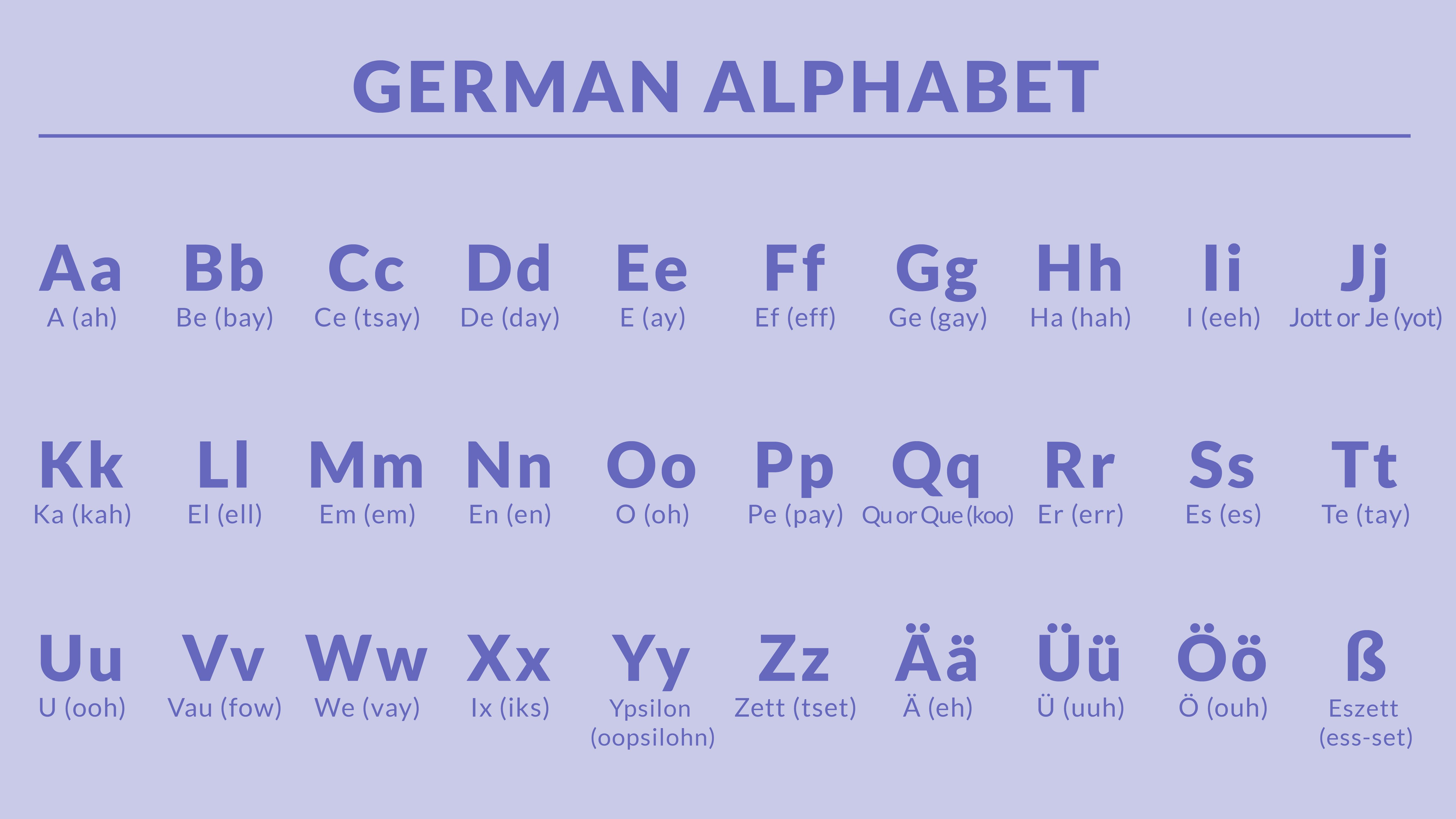
German has a reputation for being pretty challenging for English speakers. There are many factors that make learning it a difficult task – the grammar, pronunciation, and the numerous verb forms just to name a few. But with enough dedication and practice, anyone can learn to speak this challenging language.
In this article, we will discuss five simple facts that can make German tricky to learn – and how to tackle them. We hope these tips help someone who has been considering taking up German in their lifetime but hasn’t yet because they think it might be too hard. Read on!
Learn German with Langster
Long Compound Words
When it comes to German words, there are many that can be quite long and difficult to pronounce. These words often contain lots of consonants that are strung together, making them difficult for language learners to say correctly.
For instance, the word “Schadenfreude” is pronounced “shah-duh-n-froy-duh” and contains 7 syllables. And it’s not even the longest!
The key to German pronunciation is to break things down. While it’s not necessary to learn how every single word is pronounced in the German language, it is important to be aware of how these long compound words work.
When you come across one, take a deep breath and try your best to say it correctly. You can also practice by repeating the word out loud several times, syllable by syllable. A cool thing about both German and English is that when you learn what certain letter clusters sound like, both English and German words get easier to pronounce.
Another thing to remember is that all these long German words are actually created in a pretty logical way. Let’s take a look at the German word for fridge – “der Kühlschrank.” “Kühl” means cool, and “schrank” means a closet, which gets us a cold closet – so a fridge. Pretty simple, right?

One of the tricks to learn German is to learn word parts. Once you learn the individual parts of the word, it will be a lot easier to put them together and say the whole thing correctly. So don’t get discouraged – just break the word down and practice saying each part slowly. Take your time, be patient, and you’ll definitely get it with practice.
German Genders and Articles
Another thing that can make German hard: genders! A major difference between German and English is that English words have no gender. In German, there are three different gender cases that words can fall into: masculine, feminine, and neuter. This might be confusing for English speakers who are used to just having two genders, and neither of which apply to words.
For example, the word “Das Buch” is neuter gender and means “the book.” But if you want to say “a book,” you would have to use the indefinite article: “ein Buch.”
Moreover, the gender of the object doesn't define the gender of the noun – so the grammatical gender often differs from the biological one. To give an example, imagine a male cat. In German, you still say the feminine word Die Katze, even if the cat is a boy.

Learning which grammatical gender a word belongs to can be a tricky part of German at first, but with a little bit of practice, it will start to make more sense.
There are many ways to learn the genders of German words – for example, by memorizing common words that are always masculine or feminine. You can also use flashcards with pictures of such objects or create some kind of a table or vocabulary list.
Eventually, you will start to see patterns in how certain words are spelled and pronounced based on their gender – and you will be able to apply those patterns to new words that you learn. As with anything, practice makes perfect.
German Sentence Structure and Case System
German sentence structure and case system are two more factors that can make this language hard to learn.
In English grammar, we usually just have one main subject and one main verb in a sentence. But German grammar is a bit more tricky. There can be numerous subjects and verbs, and they can be arranged in a number of different ways. This can be confusing for English speakers who are used to simpler sentence structures.
For instance, the sentence “The dog is eating a bone” would be translated to “Der Hund isst ein Knochen.” In this sentence, “der Hund” is the subject, and “ist” is the verb.
But in German grammar, the word order can be changed around and the sentence could still be grammatically correct. To illustrate, “Ein Knochen wird vom Hund gegessen” means the same thing as the original sentence.

Each case has a specific use, which allows playing with the sentence structure without making the sentence unreadable.
Fortunately, just like many parts of the German language, the German case system is also well-structured and logical. Moreover, English already has two similar cases to German – nominative and accusative. Read more about the case system explained here.
With a little bit of practice and structuring, you should be able to understand how the cases work and how to use them correctly. Of course, you will make some mistakes at first, but remember to continue practicing. After all, mistakes are part of the process when it comes to learning German.
Spoken Language is Different From the Written One
One of the challenges of learning German is that the spoken language can differ a lot from the written language. This is because, in German, you have different verb forms and grammar rules that are always used in writing, but not always in speaking.
This can be confusing to a lot of people who are trying to learn German. You may learn how to say a sentence correctly in writing, but in conversation with a native speaker, it can sound completely different.
This is because Germans use two different registers in everyday life – low and high.
For instance, the word order in a sentence can be different when you’re speaking than when you’re writing. To give an example, it can be reversed like this:
German
English
Wenn ich raus gehe, nehme ich den Bus.
When I go out, I take the bus.
Germans can also put an adverb of time, or place in the front of the sentence, changing the word order to ADVERB - VERB - SUBJECT – etc… For example:
German
English
Heute gehe ich nach Munich.
Today, I am going to Munich.
Another example is that the present tense verb forms in written German are usually used for future sentences. This is similar to English, where you can use the construction “going to” instead of “will.” So, in spoken German, you would say:
German
English
Ich gehe morgen in den Laden.
I'm going to the store tomorrow. (Instead of “I’ll go to the store tomorrow.”)
Of course, all that doesn’t make the language learning journey easier, especially if we take into account different German accents that appear in the spoken language.
So, what can you do to overcome this obstacle?
The best way to learn how the spoken language differs from the written language is to listen to German audio and watch German videos. This will help you to hear how the words are pronounced in different contexts, and you will start to see how the spoken language differs from the written language.
Different audio exercises are also a great way to see words used in real-life contexts, which will definitely boost your active vocabulary.
The Pronunciation Can Be Tough
German pronunciation can be a difficult task for English speakers. This is because there are a number of sounds in German that don’t exist in English.
For instance, the German letter “ü” is pronounced like the word “y” (make the sound “ee” and purse your lips as if you were whistling, almost completely shut). Or, for example, the letter “ch” is pronounced like the word “k.”
Additionally, German has three different sounds for the letter “e,” which can be difficult for English speakers to differentiate. This letter can be pronounced as the letter “e” in English (as in the word “get”), as the letter “i” in English (as in the word “machine”), or as the sound “ee,” that has no corresponding sound in English.
Fortunately, when learning a new language, pronunciation can often be managed with enough practice. There are a number of methods that can help you improve your pronunciation, including watching German movies, listening to podcasts, working with a tutor, or even listening to stories on Langster.
Final Thoughts
Is German hard to learn? Yes and no. Learning German may seem like a challenging task at the beginning, but it is definitely not impossible. It's actually very logical and organized – just like the Germans themselves.

With enough practice, you will be able to read and speak German as if it were your own native tongue. The grammar is complex in some places (like the case system that makes many learners question their life choices), but it is easy to deal with once you get used to them!
It can take time for many people to master this challenging language that has many rules – but don't give up on yourself just because of how tough things first seemed. You're capable of anything if you put in the work. Give yourself an A+ for effort when tackling the challenge of learning a new language – you deserve it!









